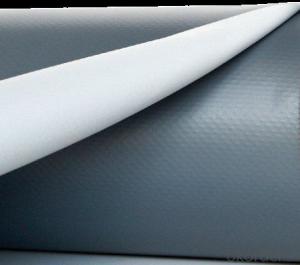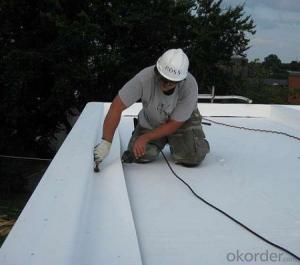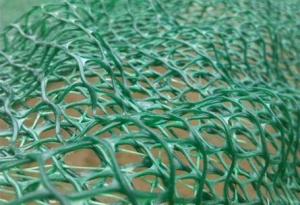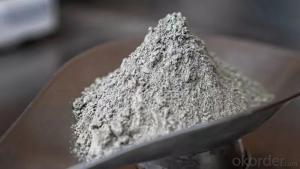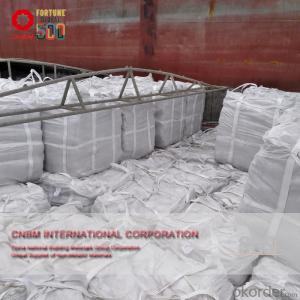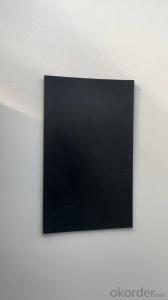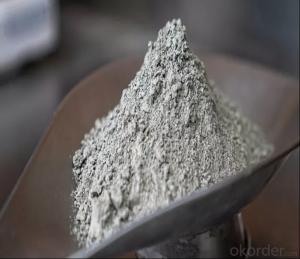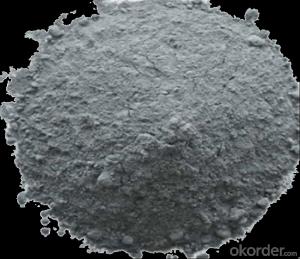PVC Membrane Reinforcement of Polyester for Waterproof System
- Loading Port:
- Qingdao
- Payment Terms:
- TT or LC
- Min Order Qty:
- 5000 m²
- Supply Capability:
- 100000 m²/month
OKorder Service Pledge
OKorder Financial Service
You Might Also Like
PVC Membrane Reinforcement of Polyester for Waterproof System
Description Of PVC Membrane Reinforcement fo Polyester for Waterproof System:
1. PVC Membrane Reinforcement fo Polyester is made from PVC and poliester , which is for waterproofing of exposed and non-exposed applications.
2. PVC Membrane Reinforcement fo Polyester adopts the world-advanced equipment of cold feeding extrusion and continuous vulcanization technology.
3. PVC Membrane Reinforcement fo Polyester is of high elasticity among high polymer waterproof materials and becomes a world-popular waterproofing material.
Main Features of PVC Membrane Reinforcement fo Polyester:
1. Excellent physical and mechanical performance
2. High tearing resistance
3. Good deformation adaptability
4. High puncture resistance
5. High aging resistance
6. UV resistance
Specifications of PVC Membrane Reinforcement fo Polyester:
Material | PVC |
Size | 1.2m (width)*20m (length) or customized, weldable type 2.05m |
Thick | 1.2mm, 1.5mm, |
Type | Reinforcement fo Polyester |
Pattern | Non-reinforced (homogeneous) |
Certificate | ISO9001/14001 |
Applications of PVC Membrane Reinforcement fo Polyester:
1.Roofs, Basement, Toilets
2. Industrial and civil building waterproofing
3. Geosynthetic liner for swimming pool, channels, irrigation system
IMages of PVC Membrane Reinforcement fo Polyester:
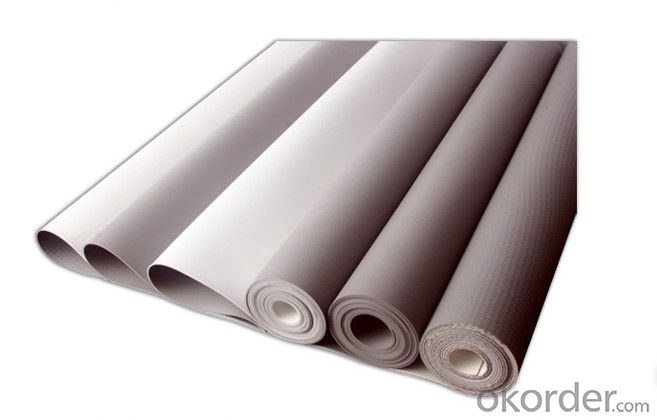

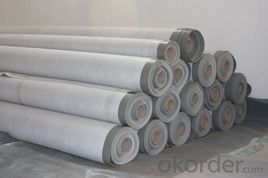
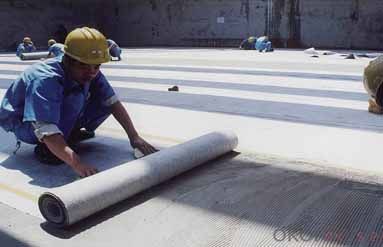
FAQ:
1. What are we supplying?
We are specialized in producing Colorful Asphalt Roof Shingle, SBS/APP modified bitumen waterproof membrane, Self adhesive bitumen waterproof membrane, PVC waterproofing membrane, EPDM rubber roofing membrane, Single Component Polyurethane Waterproof Coating, and Spray Polyurea Waterproof Coating
.
2. How Many years experience do we have?
We have been exported to more than 15 countries in the past 10 years.
3. How long do we usually reply your request?
We always reply our customer within 12 hours.
- Q:Can a waterproofing membrane be used on concrete surfaces?
- Concrete surfaces can indeed benefit from the application of a waterproofing membrane. These membranes are frequently employed to safeguard concrete constructions, such as basements, foundations, and roofs, against water-related harm. Their purpose is to establish a barrier that prevents water from infiltrating the concrete surface. By doing so, they aid in averting the accumulation of moisture, the growth of mold, and the deterioration of the concrete. Furthermore, these waterproofing membranes can furnish supplementary defense against chemicals, UV rays, and other environmental elements. To accomplish the desired waterproofing outcomes, it is crucial to ensure that the membrane is properly installed and compatible with the specific concrete surface.
- Q:Can waterproofing membranes be used in basements?
- Basements can indeed benefit from the use of waterproofing membranes. These specialized membranes are designed specifically to act as a barrier against water penetration and are commonly employed in basements to effectively prevent moisture and water seepage. Typically composed of materials like rubber, bitumen, or polyethylene, these membranes are carefully applied to the walls and floors of the basement, creating an impermeable seal that keeps water out. By effectively stopping water from entering the basement, these membranes play a crucial role in safeguarding the foundation, walls, and interior spaces from the damaging effects of water, including mold and other moisture-related problems. Moreover, for comprehensive protection against water infiltration, waterproofing membranes can be utilized in conjunction with other waterproofing techniques like drainage systems and sump pumps.
- Q:Can a waterproofing membrane be used for underground utility vaults?
- Indeed, underground utility vaults can benefit from the utilization of waterproofing membranes. These specialized membranes are specifically engineered to serve as a shield against water infiltration, and they find extensive application in a wide range of construction projects, such as underground structures like utility vaults. By employing waterproofing membranes, the undesirable consequences of water damage, corrosion, and leakage can be effectively averted in underground vaults, thereby safeguarding the utilities and equipment housed within and ensuring their durability and longevity.
- Q:How does a waterproofing membrane handle exposure to chemicals?
- A waterproofing membrane is designed to handle exposure to chemicals by providing a protective barrier that prevents them from penetrating through the membrane. It is typically resistant to a wide range of chemicals, including acids, alkalis, solvents, and oils. This ensures that the membrane remains intact and effective in preventing water ingress, even in environments where chemical exposure is common.
- Q:Can a waterproofing membrane be used for elevator shafts?
- Yes, a waterproofing membrane can be used for elevator shafts. Elevator shafts can be susceptible to water infiltration, especially in locations with high water table or prone to flooding. A waterproofing membrane acts as a protective barrier against water penetration, helping to prevent damage to the elevator shaft and its components. It is an effective solution to ensure the longevity and proper functioning of elevator systems in such conditions.
- Q:Can a waterproofing membrane be used for industrial applications?
- Yes, a waterproofing membrane can be used for industrial applications. Waterproofing membranes are designed to provide a barrier against water penetration and can be used in a variety of industrial settings where protection against water intrusion is required. These membranes are commonly used in industries such as construction, manufacturing, and transportation to prevent water damage to structures, equipment, or products. They can be applied to various surfaces including roofs, walls, floors, and underground structures to provide long-lasting waterproofing solutions. Additionally, waterproofing membranes can withstand harsh environmental conditions, chemicals, and high temperatures, making them suitable for industrial applications where resistance to these factors is essential. Overall, waterproofing membranes are a reliable and effective solution for industrial waterproofing needs.
- Q:Can a waterproofing membrane be used on both interior and exterior walls?
- Yes, a waterproofing membrane can be used on both interior and exterior walls. Waterproofing membranes are designed to prevent the penetration of water or moisture into the walls, regardless of whether they are located on the interior or exterior of a building. These membranes are typically made from materials such as rubber, modified bitumen, or liquid-applied coatings, and they provide an effective barrier against water infiltration. By applying a waterproofing membrane on both interior and exterior walls, you can ensure the long-term protection of your building from water damage, mold growth, and other moisture-related issues.
- Q:Is a waterproofing membrane resistant to gasoline or other petroleum-based substances?
- Waterproofing membranes are typically able to resist gasoline and other substances that are petroleum-based. These membranes are commonly manufactured from materials like polyurethane or PVC, which are recognized for their ability to withstand chemicals and petroleum products. This resistance guarantees that the membrane remains intact and effective at preventing water from infiltrating even when it is exposed to gasoline or other petroleum-based substances. However, it is crucial to mention that the actual level of resistance may vary depending on the type and quality of the waterproofing membrane being used. It is recommended to seek advice from a professional or review the product specifications to ensure that the selected membrane is suitable for the intended application involving gasoline or petroleum-based substances.
- Q:Can a waterproofing membrane be used for water treatment plants?
- Yes, a waterproofing membrane can be used for water treatment plants. Waterproofing membranes are designed to prevent the passage of water and can be used to provide a barrier against water leakage in various structures, including water treatment plants. These membranes can be applied to different areas of the plant, such as tanks, reservoirs, pipes, and basements, to prevent water infiltration and protect the infrastructure from potential damage. Additionally, waterproofing membranes can help maintain the integrity of the water treatment process by ensuring that water remains contained within designated areas and does not seep into surrounding soil or structures.
- Q:Is a waterproofing membrane compatible with different types of roofing materials?
- Yes, a waterproofing membrane is compatible with different types of roofing materials. It can be used with various roofing systems such as asphalt shingles, metal, concrete, or tile roofs. The purpose of a waterproofing membrane is to create a barrier against moisture, regardless of the roofing material used.
1. Manufacturer Overview |
|
|---|---|
| Location | |
| Year Established | |
| Annual Output Value | |
| Main Markets | |
| Company Certifications | |
2. Manufacturer Certificates |
|
|---|---|
| a) Certification Name | |
| Range | |
| Reference | |
| Validity Period | |
3. Manufacturer Capability |
|
|---|---|
| a)Trade Capacity | |
| Nearest Port | |
| Export Percentage | |
| No.of Employees in Trade Department | |
| Language Spoken: | |
| b)Factory Information | |
| Factory Size: | |
| No. of Production Lines | |
| Contract Manufacturing | |
| Product Price Range | |
Send your message to us
PVC Membrane Reinforcement of Polyester for Waterproof System
- Loading Port:
- Qingdao
- Payment Terms:
- TT or LC
- Min Order Qty:
- 5000 m²
- Supply Capability:
- 100000 m²/month
OKorder Service Pledge
OKorder Financial Service
Similar products
New products
Hot products
Related keywords
